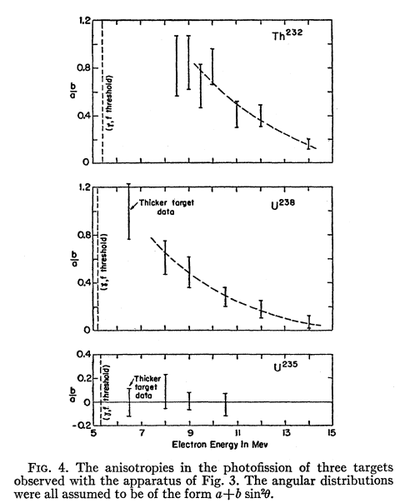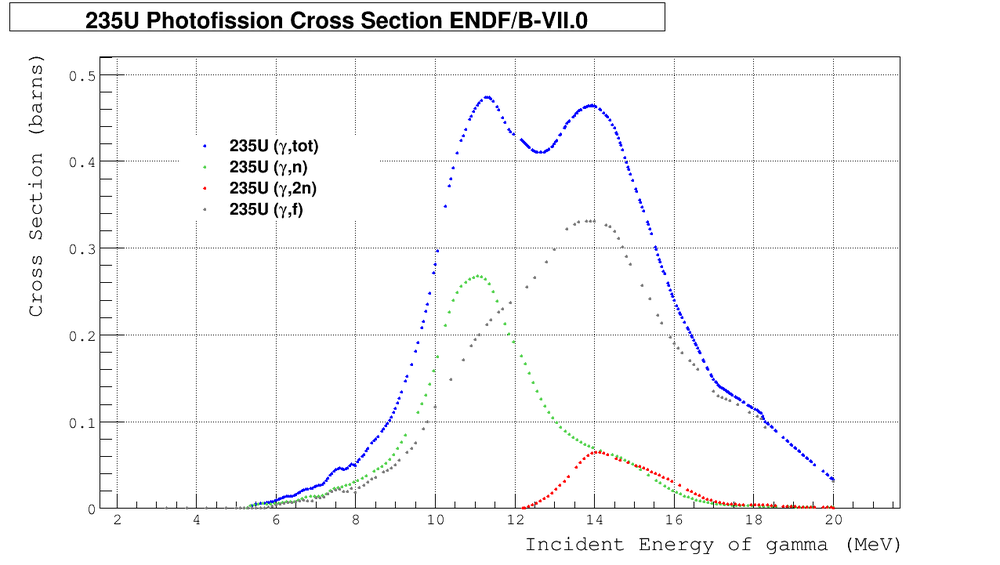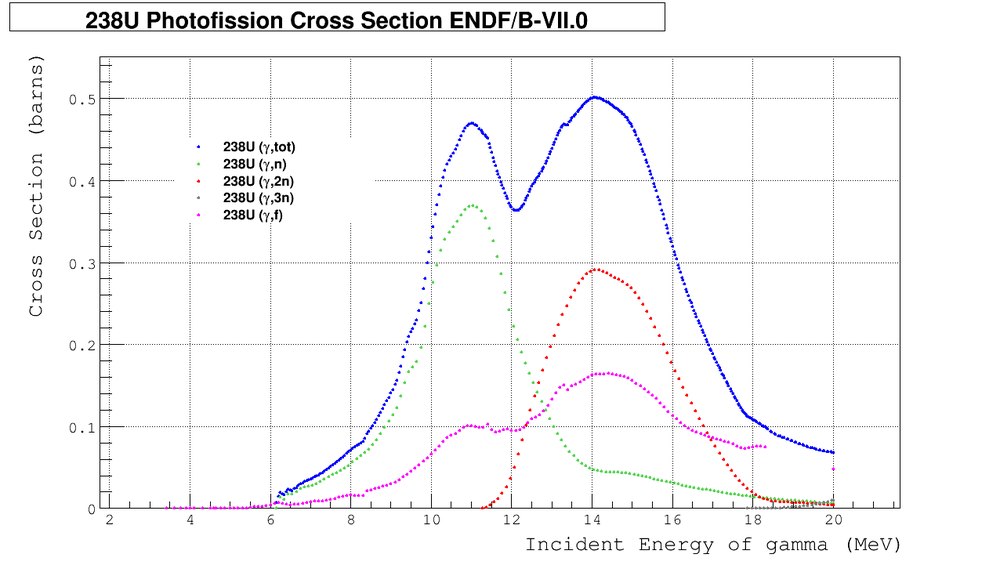Anisotropic n's vs. isotropic ones
Revision as of 15:20, 24 June 2011 by Shaproma (talk | contribs) (→Winhold and Halpern, Phys.Rev. 103 4, 990 (1956))
Winhold and Halpern, Phys.Rev. 103 4, 990 (1956)
- The observation were consistent with the assumption that
- anisotropic fission is due solely to photons with-in about
- 3 MeV of the fission threshold".
Anisotropic n's vs. isotropic ones
Say, we have only anisotropic neutrons
So the calculated asymmetry would be:
Now, say, we have extra 200 isotropic neutrons
So the calculated asymmetry would be:
That really reduce the measured asymmetry. If isotropic neutron's more that anisotropic we would not be able probably to see any asymmetry. Need to count isotropic and anisotropic neutrons.
Source of anisotropic neutrons:
- (,f) channel due solely to photons with-in about 3 MeV of the fission threshold
Source of isotropic neutrons:
- (,f) channel due solely to photons out of 3 MeV of the fission threshold
- (,n) channel?
- (,2n) channel?


